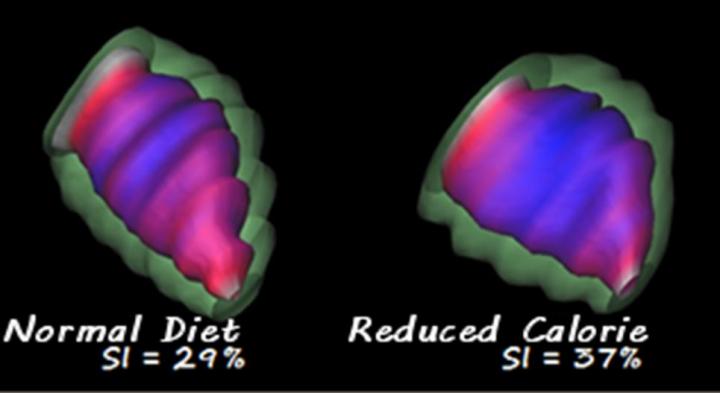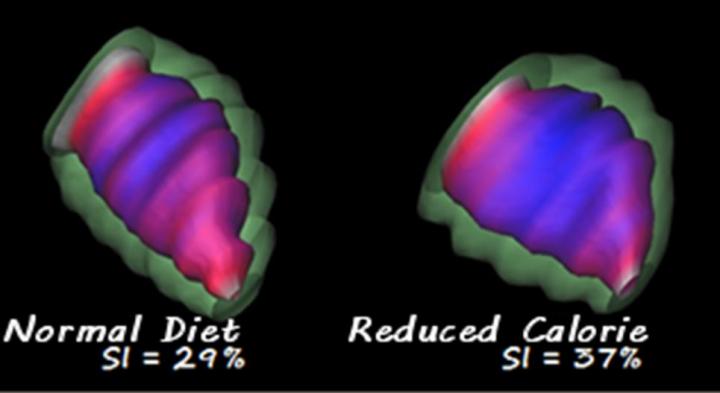
Credit: Dr. Peter Nathanielsz and Dr. Geoffrey Clarke
New research has shown that the child of a slightly undernourished mother is more likely to suffer early aging of the heart.
That's according to a new study looking at the relationship between food intake of pregnant baboons and the health of their offspring's heart. The study, published in The Journal of Physiology was carried out by a multidisciplinary team led by Dr. Geoffrey Clarke at the University of Texas Health Science Center San Antonio and Dr. Peter Nathanielsz at the University of Wyoming (4).
The researchers found that moderately reducing a mother's food intake can impact the rate at which the offspring's heart ages. Evidence is accumulating that restricted dietary intake can cause problems for the fetus which result in abnormal structure and function of developing organs, such as the heart. This makes it more likely that the offspring will suffer chronic illnesses later in life, such as heart disease and stroke. This study introduces the additional potential that a restricted diet during development accelerates the rate of aging.
The researchers chose to study the baboon heart as this model most closely mimics human development and aging. They used MRI scanning to study the hearts of male and female baboons whose mothers ate thirty percent less than the normally fed baboons. They found that the offspring of baboons, which ate less, showed signs of reduced heart function that comes with age. By five years of life, equivalent to twenty human years, the structure and function of the heart were already impaired (4).
The scientists describe the effects as being akin to what happens to a car that is built out of poorly manufactured parts and according to a poor design. The car won't travel as far, as fast, or for as long as it's correctly built peers. Similarly, poor maternal nutrition can make it more likely that the baby's organs will show increased disease susceptibility and early aging.
The research suggests that this issue could affect humans in developed countries as well as developing. The degree of maternal dietary restriction undergone by the baboons can be seen in women of reproductive age in developed countries, especially if the family struggles to afford sufficient food. Food charity The Trussell Trust recently found that more than one in five parents in the UK faces food poverty and struggles to feed their children (5).
These changes in the heart could contribute to decreased quality of life, decreased exercise capability, and increased vulnerability to other diseases such as diabetes and hypertension. Understanding the effect of maternal nutritional stress on aging of the offspring will allow for interventions early in life, to prevent later-life heart problems.
Commenting on the research, Dr. Peter Nathanielsz, director of the Wyoming Pregnancy and Life Course Health Center at the University of Wyoming said: "Women's health during pregnancy is of fundamental importance to the lifetime health of their babies. Society must pay attention to improving women's nutrition before and during pregnancy to prevent these adverse outcomes in babies."
###
Media Contact
Julia Turan
[email protected]
@ThePhySoc




